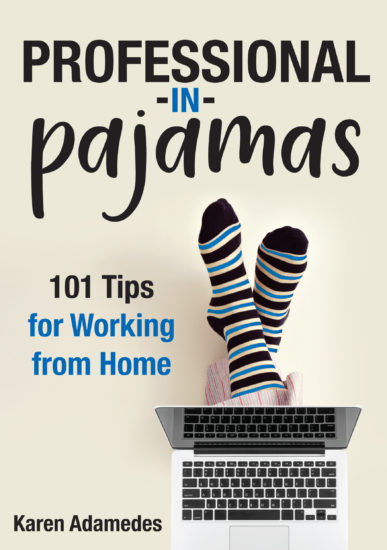
By Lucy Manole
According to research, a person spends one-third of his or her lifetime at work.
Building your career is quite a journey, and it is natural to feel the need to move it along at some point.
Financial requirements, a twist of fate, an ill-advised decision, and more can make you end up with a job that you are not happy in. However, if you are passionate about your career, you can always work on yourself and move on to a better job.
That said, it’s easy to get stagnant at work which can leads to lack of motivation and a very stressful life. Even if you are happy with your work, you might not be utilizing your true potential.
If you want to enhance your career and realize your true potential, then here are some of the steps you should follow:
1. Set Your Goal
It is essential to understand what you want out of your career. Evaluate your current position and plot a trajectory of where you want to be in five years. If you have a passion and a long-term goal, then try to break it into short term goals. This will help you achieve your ultimate goal.
Remember, your goal should be specific and achievable. While it’s a great idea to aim for bigger things in life, you need to weigh your academic qualifications, work experience, and other similar attributes before setting the goal.
Set your goals on a timeline as you may have to achieve several milestones in order to reach your ultimate destination.
And most importantly, be patient and appreciate yourself. Channel your positive energy to keep yourself aligned with your goal. Have a review meeting with yourself every day to make sure that you are on the right track, but try not to over-burden yourself.
2. Talk to Your Mentor
Sometimes it is helpful to have a mentor or guide who can let you know your drawbacks and provide you essential insights on how you can enhance your career. Constructive criticism and feedback is likely to do you better than a false consolation.
To make sure you are on the right track, try to seek career advice from a trusted mentor. Your mentor can be anyone, be it a senior colleague, a friend, your boss, or an industry expert.
Work out an action plan with the help of your guide and work towards it. The most significant advantage of having a guide is to have a broader perspective, which can help you evaluate your strengths and weaknesses.
3. Skill enhancement
Staying industry-relevant is imperative. You may have many skills, but you must keep them up-to-date. For instance, if you are a computer scientist and are unaware of new technology like Data Science and Machine Learning, then you might get replaced by someone with a better skill set. And even if you don’t get replaced, the chances of advancing your career become scant.
If you are serious about advancing your career and reaching new heights, then you have to adapt yourself with the fast-changing technology in your industry. It is never too late to learn. The best part is that the internet is inundated with numerous online courses, related to every niche and industry. Enroll yourself in a course to enhance your skills. Invest in yourself and continue your learning process to stay ahead in the market. It will eventually boost your self-confidence.
There are many online course providers like Coursera, edX, Udacity, Udemy, etc. Most of the business schools have distance learning courses for executives. If you are seeking a particular position, then make sure you have the competencies that the job requires. Remember, only technical knowledge is not enough. Try and learn soft skills to be a better fit.
4. Push Yourself to Achieve More
The key is to push your career in the right direction. Stretching your boundaries is crucial if you really want to achieve your goals. If you feel that you work better under pressure, then make sure you critique yourself regularly to improve. If you continue with your regular routine and hope for the best, then nothing will change. Just a lot of procrastination.
Even if your plan is rock solid and your goal is super achievable, it will not achieve anything until and unless you execute it properly. The best way to push your career in the right direction is by making a to-do list. Simply tick the boxes one by one at the end of the week/day and evaluate your position.
There is no substitution for hard-work and dedication. We tend to limit ourselves and find a comfort zone. If you are really willing to improve yourself, then it is crucial to step out of your comfort zone and do some things differently.
5. Network Extensively
Social platforms like Twitter, LinkedIn, etc. are a great way to dabble into a sea of opportunities online. These platforms, especially LinkedIn, make it easy for you to get in touch with company executives, hiring managers, potential business partners, and so forth.
Also, an employee rarely gets the chance to interact with human resource professionals. Hence, there is a gap between the need for an organization and what you expect from it. Networking can bridge the difference easily. The more connections you make, the more visible you become.
Interact with the industry experts and learn from their insights. You can ask pertinent questions and become industry-ready. Do not hesitate to ask for recommendations and endorsements on LinkedIn to add more value to your profile.
Now, it’s your turn!
Understanding your worth is of paramount importance. Set a specific, measurable, achievable, realistic, and time-bound goal and break it into smaller parts. Walk a short path daily towards success and don’t shy away from seeking help if required. Take advantage of online learning platforms. Improve your communication skills and other soft skills too. Finally, reach out to as many people as you can via networking and find out the best possible position for yourself and apply for it with confidence.
Start organizing and planning today if you want to see yourself in a better position tomorrow. Don’t delegate it anymore; you have a lot of catching up to do.
Author Bio
Lucy Manole is a creative content writer and strategist at Right Mix Marketing, SEO-focused link building agency. She specializes in writing about digital marketing, technology, entrepreneurship, and education. When she is not writing or editing, she spends time reading books, cooking and traveling. You can connect with her on Twitter at @RightMixMktg
Social Links:
Twitter at https://twitter.com/rightmixmktg
LinkedIn https://www.linkedin.com/company/rightmixmarketing
Facebook https://www.facebook.com/RightMixMarketing/
Karen Adamedes is an experienced executive, author and career-tipster. In her most recent book ‘Professional in Pajamas: 101 Tips for Working from Home’ Karen shares many of the insights she has gained during a decade of working from home, where she has negotiated multi-million dollar deals, led national teams and delivered major projects. She does admit to sometimes working in her pajamas.




